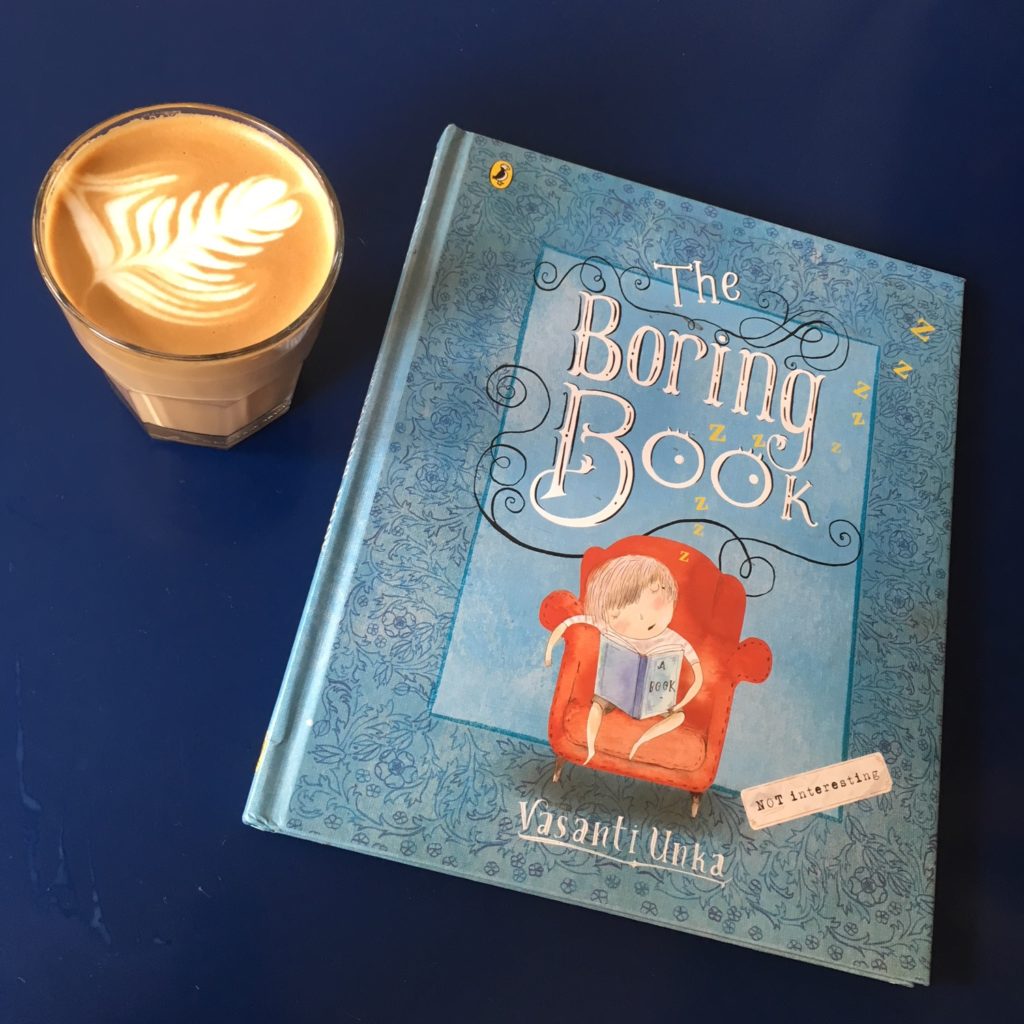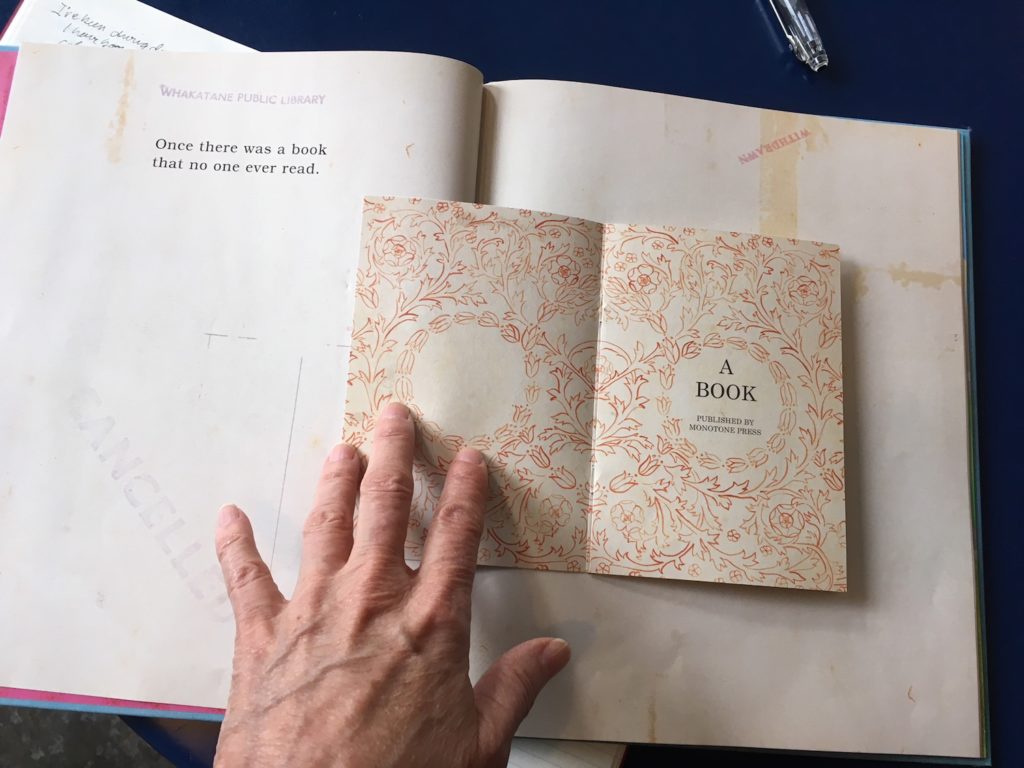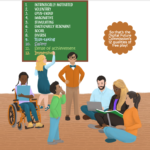
I have books on my mind. In a café I visit in the early morning, I spotted a book on a shelf filled with locally made pottery, baskets of toys, and children’s storybooks. Something about that title sucked me in…opening it revealed a book within a book, followed by several whimsical little books-within-the-book as I turned the pages.
To avoid too big of a spoiler, I’ll just say the last page presents a surprising twist with an invitation for the reader to leap from reading to writing. It’s a beautiful book for a young reader, with a maker message.

New Zealand author Vasanti Unka is trained as a graphic designer. The Boring Book won several NZ awards including Margaret Mahy Book of the Year.
A few books I return to again and again. David Levy’s Mindful Tech—How to Bring Balance to Our Digital Lives (Yale University Press, 2016) is one such book. Levy is a professor at the Information School of the University of Washington. He’s deeply rooted in technology—he worked as a researcher at Xerox PARC from 1984 to 1999. And at the same time, he’s deeply rooted in craft and the contemplative arts. He studied calligraphy and bookbinding in London.
Mindful Tech explores the idea of digital craftwork…and puts forward the challenge that we can hone our digital craft. Levy based the book on a popular ten-week course he developed on Information & Contemplation for students at the iSchool (offered from 2006–2016) He shaped the book around five exercises that walk you through the practice of observing and reflecting on your default digital behaviors. He makes an analogy between doing craftwork and taking a journey, and suggests three stages—preparing, performing, finishing. Levy writes:
What I’ve noticed over years of helping people observe their online behavior is that we rarely pay attention to the requirements of these different stages.
If you read one non-fiction book this summer, make it this one. And if you don’t have time to read, watch the 45-minute webinar Levy gave in 2017 here for the Association for Contemplative Mind in Higher Education (ACMHE). If you have teens, watch it together. It’s an excellent catalyst for your family technology conversations. With summer’s arrival, contemplating how to hone our digital craft is an investigation that will contribute to quality of life in the family. Get creative and adapt the exercises to fit your unique digital pushes and pulls.
More of what I’m reading: I just finished reading a YA novel by writer Marie Lu—Warcross. The book was inspired by the multiplayer game League of Legends and Marie Lu’s previous work as a game designer in Los Angeles. No wonder the article “Schools Use Esports as a Learning Platform” by Constance Steinkuehler caught my eye in U.S. News. Constance Steinkuehler knows video games and learning. She is “a professor of Informatics at the University of California—Irvine where she researches the cognitive, intellectual, and social aspects of esports and multiplayer online video games. She served as senior policy analyst under the Obama administration in the White House Office of Science and Technology Policy, advising on games and digital media.” Constance writes:
Tiffany Bui, a biology teacher at Mission Viejo High School and general manager for the school’s esports team, summed up the experience of the team: “Most people don’t associate playing video games with learning, but I’ve witnessed it on our team. The students’ communication skills improved, they crossed language barriers and gender stereotypes to welcome new players to the team, and they tried different gameplay strategies based on each other’s styles and the strengths of their opposition. That’s a wide range of impacts coming from a single season of play!”
If you want to explore thinking differently about media and games and teens, download the pdf of the MIT Press book Hanging Out, Messing Around, and Geeking Out. Contributors are some of my favorite people researching games, media, and learning. Constance Steinkuehler links to it in the article. The book was published in 2007 with support from the John D. and Catherine T. MacArthur Foundation. But because the author educators were so forward thinking, it’s still extremely relevant.
For Father’s Day: Continuing my Indoor Species/Outdoor species thread, I appreciated this post—I Made My Kids Play Outside and Now Their Brains Work—in Fatherly by Patrick A. Coleman, dad to two sons, ages 7 and 5.

Upcoming Event
On June 20, 1–2 pm Pacific, 4–5 pm Eastern, I’ll be doing a webinar titled Parenting Adventures in the Digital Realm—From Surviving to Thriving with Parents Place Marin. We’ll focus on the skills needed today to create Mindful Digital Life in the family. I hope you can join us. You can register here.


